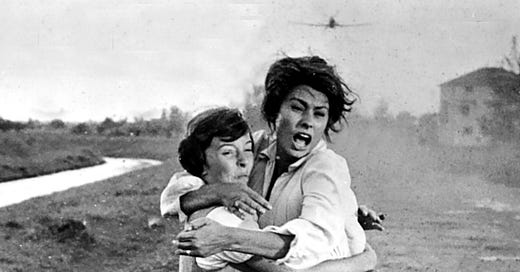A Wonderful Diary Recommendation
So I have another episode coming down the tubes, but it’s still in the early stages. In the meantime, if you have already read the stuff that I have recommended, or just want a quick read, why not take an hour or two and read Norman Lewis’ Naples ‘44 war diaries?
This is really a great primary source on a place that is often overlooked by World War II buffs. When the Americans and British rolled in, Naples was in dire straights. I have not read this diary in over a decade, so maybe this image was from Curzio Malaparte’s The Skin (which is a must-read and kudos to John Gray for reviewing both; this is how I found out about these fascinating books), but there was a vivid anecdote of Neapolitan women side by side, with literal theme park lines of American GI’s lined up and waiting for sex. The price was a ration can, which was added to their pile. What was really jarring was that these women felt no shame. In fact, they were gossiping about local drama while being “liberated” by dozens of American soldiers. Child prostitution and sexual deviancy of every type were on full display in this ancient city.
Also Lewis notes the widespread criminality and mafia-resurgence in Southern Italy which made many aspects of the occupation futile. As soon as Mussolini’s grip lessened, and the Germans departed, this older system of order re-asserted itself, and anything not welded to the ground was stolen. I am reminded of the Liberian Civil War and the Nigerian-led peacekeeping force sent there called ECOMOG. The acronym came to mean: Every Car or Moveable Object Gone In this particular episode, American GI’s were bought off, and the enormous stockpiles of goods brought in by the occupying forces were sold on the black market. Like the sex market, this corruption was not even concealed.
Lewis eventually became very fascinated with the culture of Italy, and actually wrote some books on the mafia, as well as further travel guides on Indochina (I would be very interested in hearing a discussion between him and Hillaire Du Berrier).
The reason that I am mentioning this diary is because it provides a very bizarre snapshot of World War II and what is was like on the ground in these liberated countries as an occupier. It reminds me of books written by former soldiers who fought in Iraq and Afghanistan who encounter many of the same problems that Lewis did.




